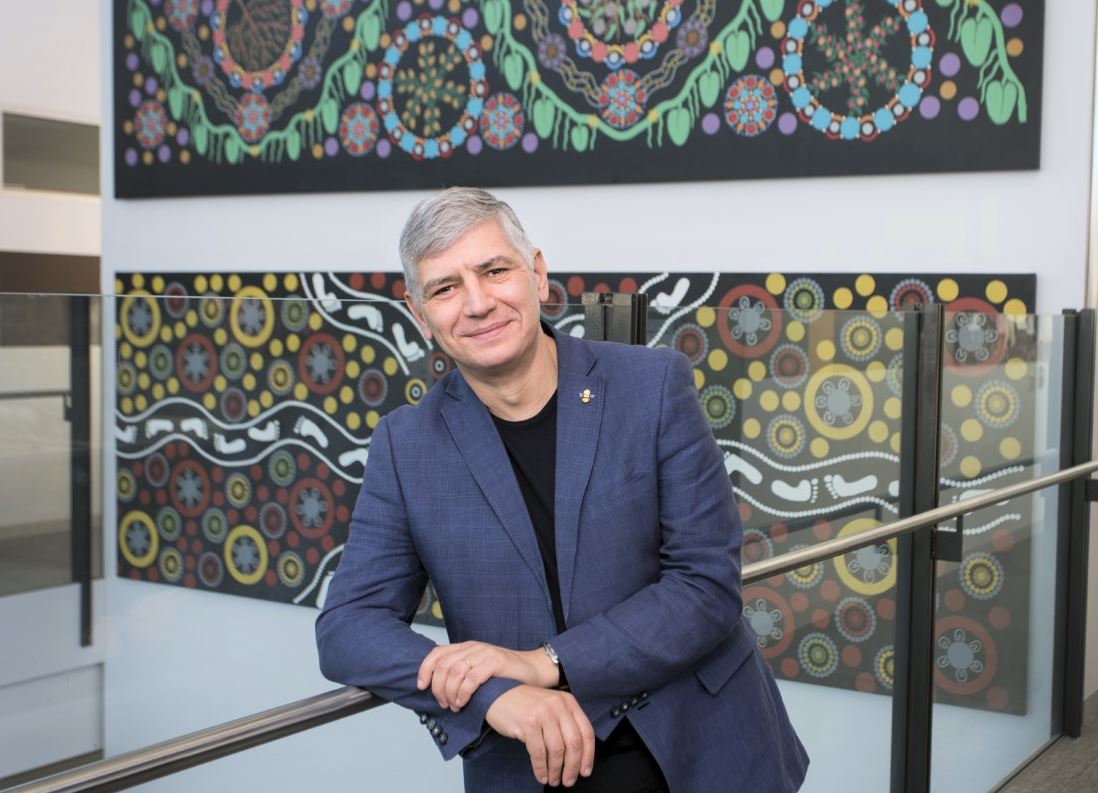
The Flinders University APPEAL and CARE framework provides some vital tips for emerging from isolation.
“As restrictions start to lift, it’s time to start turning our attention to the challenges we must face in this post-isolation world,” says College of Education, Psychology and Social Work Vice-President Professor Mike Kyrios, director of the Órama Institute, Órama Institute for Mental Health, Wellbeing and Neuroscience who developed the new guidelines.
The COVID-19 crisis is having a significant impact on people’s mental health, he says, and social distancing will continue to impact how we “socialise, shop, conduct education, exercise, entertain ourselves and so on” for the foreseeable future.
“Our attitudes and coping strategies in response to the new ‘normal’ will determine how successfully we will adjust.
“Many people will be experiencing adjustments in their lives, particularly their work life, with many jobs either no longer there or changes to workplace practices,” says Professor Kyrios.
“With most of us experiencing such personal, family, social and work upheavals, we need to consider ways to tackle the inevitable mental health and wellbeing implications so as to emerge from this pandemic ready to flourish.
“Negative adjustment will stifle creative solutions to the challenges ahead.
“However, if we emerge as strong and resilient individuals, we will be able to help support our communities and rejuvenate our economy to facilitate growth, development, confidence and recovery.”

The Flinders University staff and student COVID-19 webpages share the first framework for isolation, under the STREAM acronym (see video here).
Professor Kyrios and Órama Institute experts also worked with SAHMRI’s Wellbeing and Resilience Centre to develop online resources for the COVID-19 mental health.
The BeWellPlan.com website launched last month provides free access to mental health training programs and resources and has had more than 11,000 visits since it was launched a month ago.
More than 700 people have undertaken the wellbeing measurement while hundreds more have interacted with the resources provided there.
The Centre’s Research Lead, Mr Joep Van Agteren, says the number of people reporting no issues with wellbeing, resilience or mental health has halved since COVID-19 restrictions were introduced.
“In normal times we see about 50 per cent of people are ‘healthy’, with good wellbeing and resilience and no signs of distress,” Mr Van Agteren said. “That number has been halved to just 25 per cent.”
“We compared the measurements from people accessing BeWellPlan.com with two separate large groups who did the measurement pre-COVID-19,” Mr Van Agteren said.
“It’s clear to see the dramatic impact COVID-19 is having, and sadly we expect the situation to only get worse, even after life begins to return to some sense of normality.”
The questionnaire results also revealed:
• Three-times as many people reporting low wellbeing
• 12% more people reporting resilience levels that put them at risk of mental illness
• 21% increase in people reporting mild symptoms of depression
• 13% increase in people reporting mild distress from anxiety
• 15% increase in people reporting mild stress
“The at-risk people represented in these statistics are up to seven-times more likely to develop mental illness,” Mr Van Agteren said.
Even at the lower end of estimates based on these measurements, it represents around 4 million Australians who should be accessing some form of professional support.
“There are a lot of people out there feeling isolated and worried,” he said. “They’re worried about the disease, they’re anxious about their friends and family and they’re stressed about job security and finances.
“These people need services beyond the traditional health system – more than mass media campaigns and print resources.
“We need serious action to address this and we need it now. Be Well Plan is part of that, but we need to do more if we want to provide people with change that lasts. We need to focus on building health and resilience within our community, not just focus on illness.”

